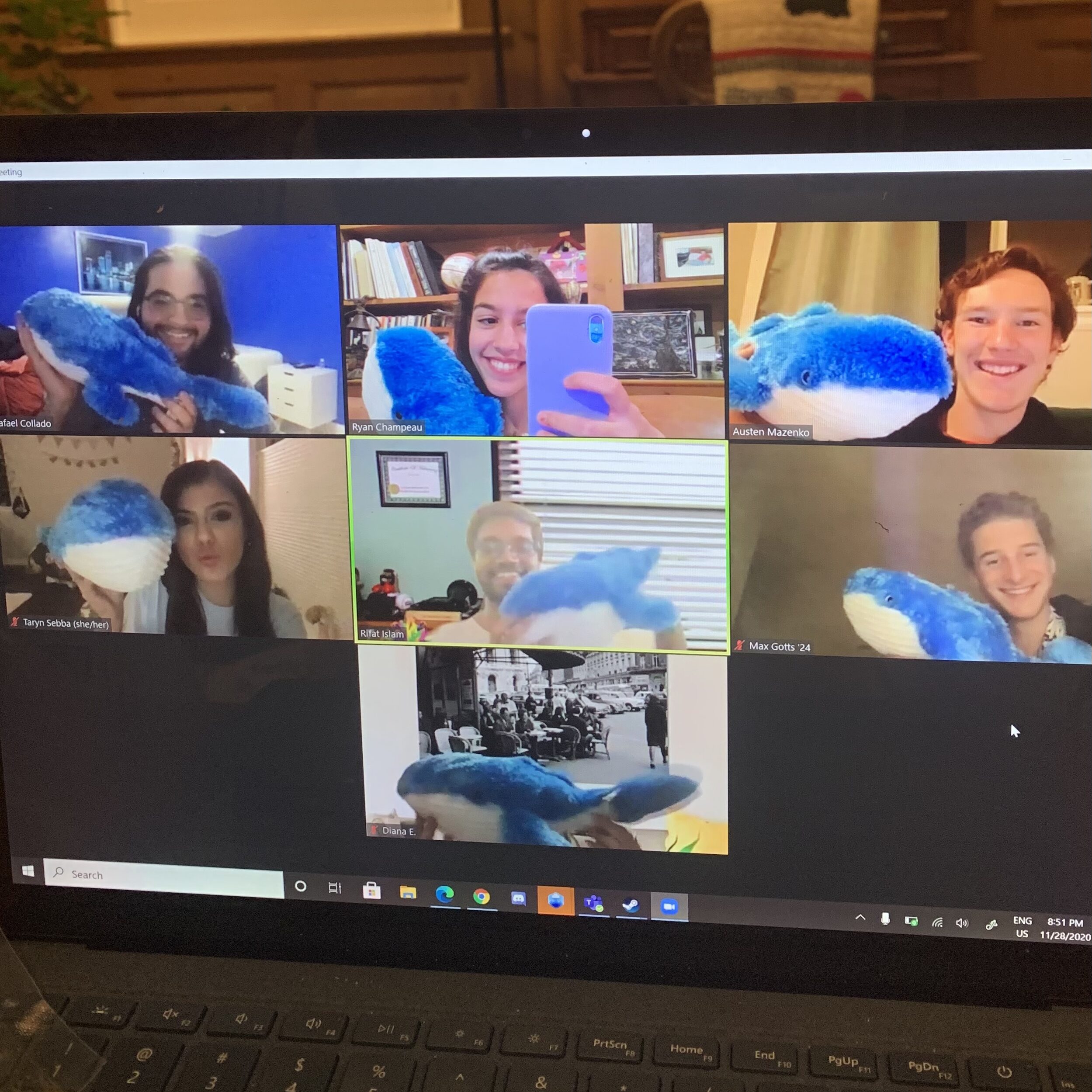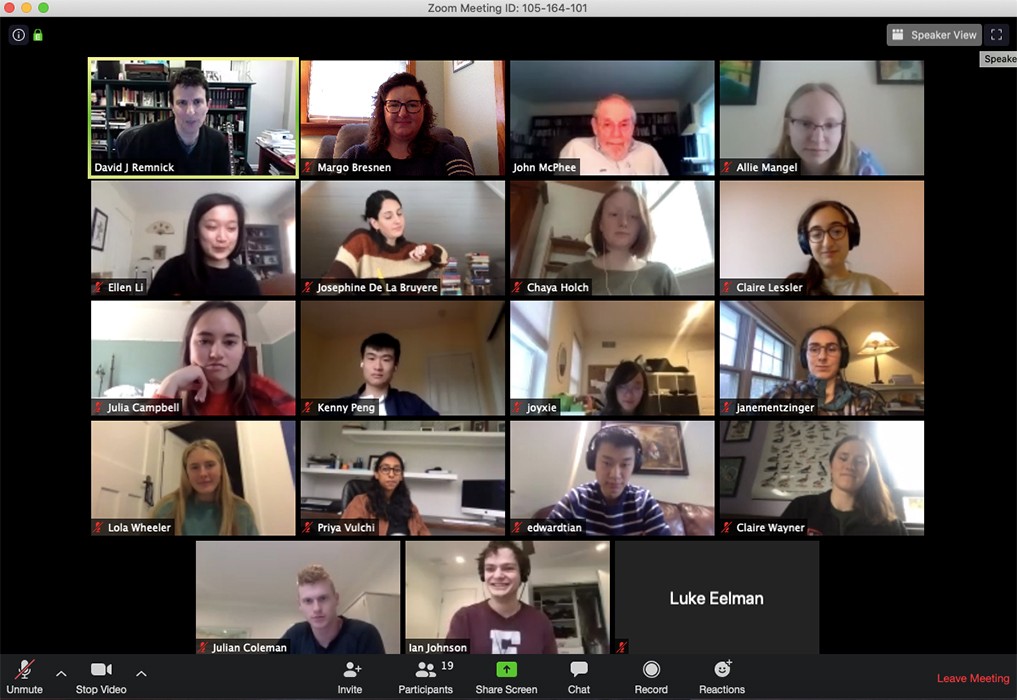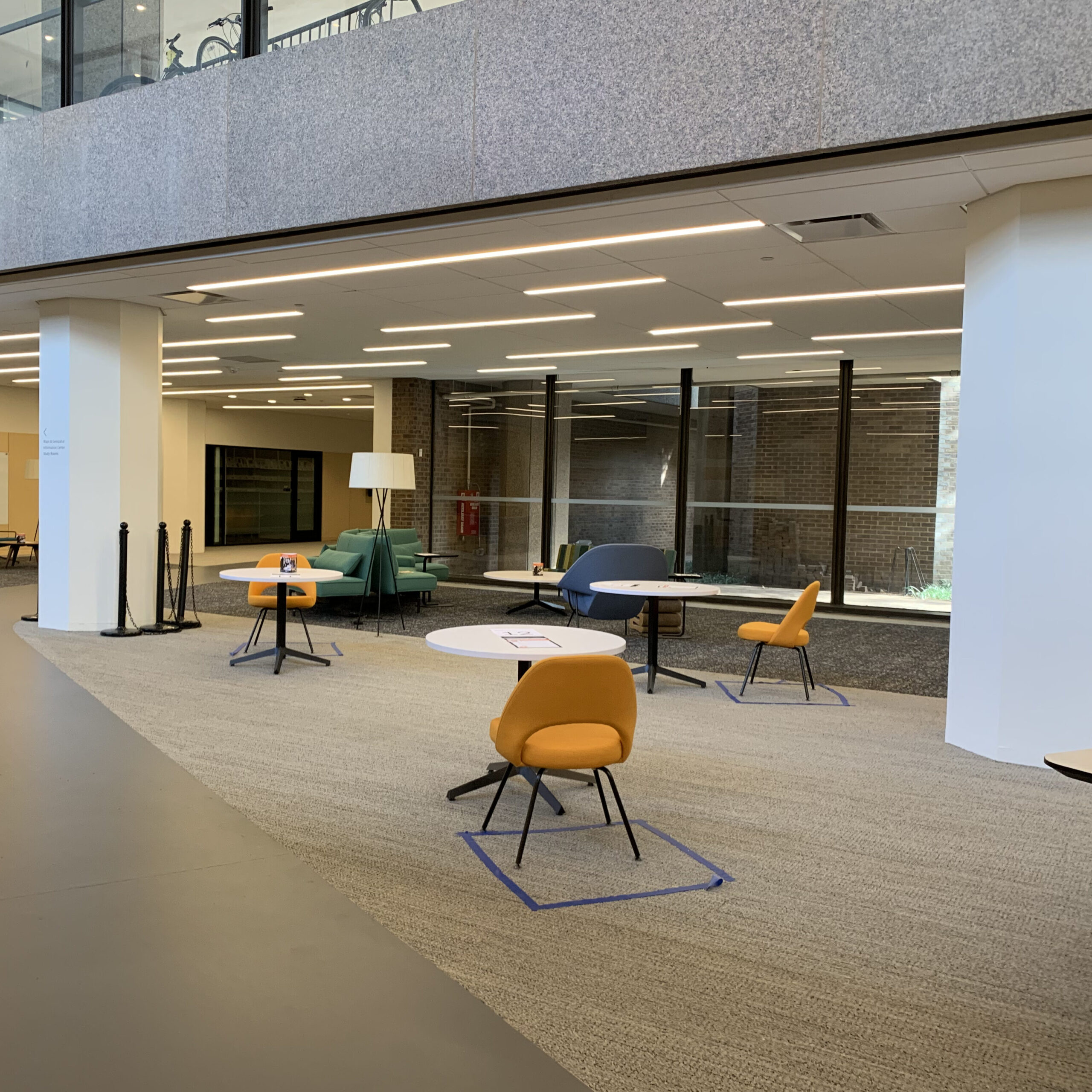When writing a research manuscript or a lab report, I have been conditioned to complete all of my experiments first and then start by writing the results section. My mentors have always encouraged me to start with the section that ‘writes itself’, given that when you obtain your experimental results, you cannot alter them. I started the school year thinking I would use this approach for my thesis – focus strictly on experiments during the fall and the start of spring semester and transition into the written portion of the thesis during late spring semester. However, while I was at home and outside of the lab between Thanksgiving break and early February, I knew I could not spend more than 2 months without thesis progress. Although I did not have my results nearly ready by that point, I began to brainstorm different ways in which I could work on my lab-based thesis without access to the lab. In this post, I will highlight ideas and resources that can help you make progress on your thesis, even while you are outside of the lab.
Continue reading How to Make Progress on Your Lab-Thesis Outside of the LabDoing Research in a Pandemic, An Interview with Molecular Biology Graduate Student Emily Mesev
For this Spring Seasonal Series, entitled Doing Research in a Pandemic, each correspondent has selected a researcher to interview about the impact of the pandemic on their research. We hope that these interviews document the nuanced ways the pandemic has affected research experiences, and serve as a resource for students and other researchers. Here, Nanako shares her interview.
For this seasonal series, I decided to interview Emily Mesev, a Ph.D. candidate in the Department of Molecular Biology. I was interested in how her experience as a graduate student differed from my experience as an undergrad. Because undergrads aren’t allowed to be in the laboratory (at least for Molecular Biology), I’ve had to change my thesis topic and redirect it to become computational. I was excited to find out whether the graduate student experience had changed in similar ways!
Continue reading Doing Research in a Pandemic, An Interview with Molecular Biology Graduate Student Emily MesevTips for Finding Policy-based Internships
Perhaps one of the more difficult aspects of being a college student is looking for summer internship opportunities. Furthermore, as I discovered this year in my own search for something to do this summer, there can often be unique challenges for students who are primarily interested in public policy. As a (prospective) economics major, it often felt like no matter how hard I searched on Handshake, nearly every internship that I found was in finance or investment banking. While these were undoubtedly interesting opportunities, this was a little disappointing to me as I was hoping that I would be able to use the summer to explore policy and economics research, and maybe even get a better understanding of possible career paths.
My initially discouraging internship search notwithstanding, be assured that these kinds of internships do exist. I myself was fortunate enough to find and eventually participate in such an opportunity– but only after I began to approach my search in a different way.
Continue reading Tips for Finding Policy-based InternshipsA Guide to Princeton Libraries during a Pandemic
Last school year, during my first year at Princeton, I rarely ventured out to study in the libraries, instead preferring to stay in the comfort of my dorm room. However, after spending the fall semester at home, I realized just how much I missed the Princeton libraries, and I regretted not taking advantage of this amazing resource more often while on campus.
Going into spring semester, I challenged myself to explore the many incredible study spaces on campus that I had never been to. I was partly inspired by this post on the best study spaces on campus, and I wanted to provide an update on how studying on campus during a pandemic is like. A lot of the logistics around studying in the libraries have changed due to new Covid-19 regulations. So, in this article, I am going to lay out the changes to the Princeton library system and provide an update on some of the best new study spaces on campus.
Continue reading A Guide to Princeton Libraries during a PandemicSay Goodbye to FOMO: Making the Most of Your Virtual Experience at Princeton

It has been about a year since the world turned upside down and Princeton as we know it changed completely. Most students returned to campus this spring, hoping to feel a piece of what Princeton once was. However, many other students stayed home due to safety concerns, or because they knew Princeton wouldn’t be the same. Regardless of the decision, I know that many students, myself included, feel FOMO and like we are missing out on what our four years should have been, both intellectually and socially. However, there is a silver lining. There are ways to stay engaged academically wherever you are, conduct research, and make new connections. So without further ado, here are 6 ways to reduce your Princeton FOMO and make the most of this semester:
Continue reading Say Goodbye to FOMO: Making the Most of Your Virtual Experience at PrincetonWhy Zoom Office Hours Are Better (and tips for making the best use of them)

If there is one thing we as students have mastered in the COVID-19 pandemic, it is Zoom and the Zoom environment. Looking back to last spring, it is admirable how educational institutions and students adapted to an unprecedented global crisis and continued with their academic and non-academic roles. Here at Princeton, the transition to Zoom was relatively smooth given the uncertainty and fear at the time. Although the initial stages of scheduling an online semester were difficult, there was a strong desire to sustain many of Princeton’s activities for the virtual campus community. The concerted efforts of students, faculty and staff have paid off. The three semesters of virtual learning I’ve had so far mimicked almost all the characteristics of the usual in-person experience I’ve come to expect at Princeton, including access to office hours.
The main medium for virtual interaction is Zoom, and it has been adapted for almost every facet of university activity, from school clubs and organizations to school hosted events and webinars. In this post, I will take a closer look at the Zoom office hours, their many advantages and in some cases, how they are actually better than in-person ones. I will then offer some suggestions for making the best use of Zoom office hours this spring.
Continue reading Why Zoom Office Hours Are Better (and tips for making the best use of them)Apply to Write for PCUR During the 2021-2022 Academic Year!
This academic year has certainly been atypical. For many, the process of doing research itself has been impacted by COVID-19: indeed, in our upcoming Seasonal Series, correspondents will interview research faculty and graduate students about their research experiences in the wake of COVID-19. Additionally, many of our favorite activities have been cancelled, while others march forward virtually. PCUR has continued to publish blog posts during this time.
In fact, we are happy to announce that PCUR is hiring new correspondents for the 2021-2022 academic year!








PCUR’s 2020-2021 Correspondents
Continue reading Apply to Write for PCUR During the 2021-2022 Academic Year!The Gem of Cross-Disciplinary Thesis Advice
For better or worse, the university is internally cloistered as an academic institution. Walls literal and metaphorical separate the departments. This is perhaps most apparent to students on an administrative level; each department has its own academic guidelines, grading policies, and research expectations. Deeper differences, though, may present in modes and content of knowledge production. Disciplines often preclude interdisciplinarity. Divergent methodologies might be applied to the same subject matter to produce different results; within a department, the range of expertise might end up applying similar methods to wildly different subjects.
I, for one, think that these disciplinary divisions often do more to stifle than to encourage intellectual growth or humanistic inquiry (on the problems and politics of the academic disciplines, see my interview with Daniela Gandorfer here). But, as things are, attempting to explain research across disciplines can be quite difficult– like speaking to someone in a different language without a translator. Seniors writing their theses are certainly familiar with this issue when trying to explain their work to people outside their department, or in some cases, anyone other than their adviser. When it comes to feedback on thesis work, then, it makes immediate sense to gravitate towards people with background in whatever you are writing about. They indeed might be able to give very pointed advice.
That said, there is still great value to turning towards those beyond the official borders of your discipline. A lack of familiarity with the subject matter can indeed be an asset– especially in terms of providing feedback on your writing and your writing/research process.
Continue reading The Gem of Cross-Disciplinary Thesis AdviceHow to Write An Email To Someone You Don’t Know
“What? Why would I ever need to read an article about how to write an email?” This is what my first thought would’ve been if I ever saw an article like this. While many Princeton students probably understand the basics of how to write an email (type, then hit send), today, I wanted to go over tips to use when “cold emailing” someone.
Before coming to Princeton, the emails that I wrote were sent to my friends and high school teachers. I’d only ever emailed people that I already knew. However, throughout the years, I’ve learned that email is wonderful ⎯ and useful for research ⎯ because you can contact people who you don’t already know! Although learning how to write emails is something that’s not taught formally, I think it’s increasingly important to know what to do and what not to do when you’re trying to catch the attention of someone you’ve never met or talked to.
Continue reading How to Write An Email To Someone You Don’t KnowA Quick Crash Course in Statistics: Part 2
Most people’s New Years Resolutions, I imagine, are not about improving their knowledge of statistics. But I would argue that a little bit of knowledge about statistics is both useful and interesting. As it turns out, our brains are constantly doing statistics – in reality, our conscious selves are the only ones out of the loop! Learning and using statistics can help with interpreting data, making formal conclusions about data, and understanding the limitations and qualifications of those conclusions.
In my last post, I explained a project in my PSY/NEU 338 course that lent itself well to statistical analysis. I walked through the process of collecting the data, using a Google Spreadsheet for computing statistics, and making sense of what a ‘p-value’ is. In this post, however, I walk through how I went about visualizing these results. Interpretation of data is often not complete before getting a chance to see it. Plus, images are much more conducive than a wall of text when it comes to sharing results with other people.
Continue reading A Quick Crash Course in Statistics: Part 2


